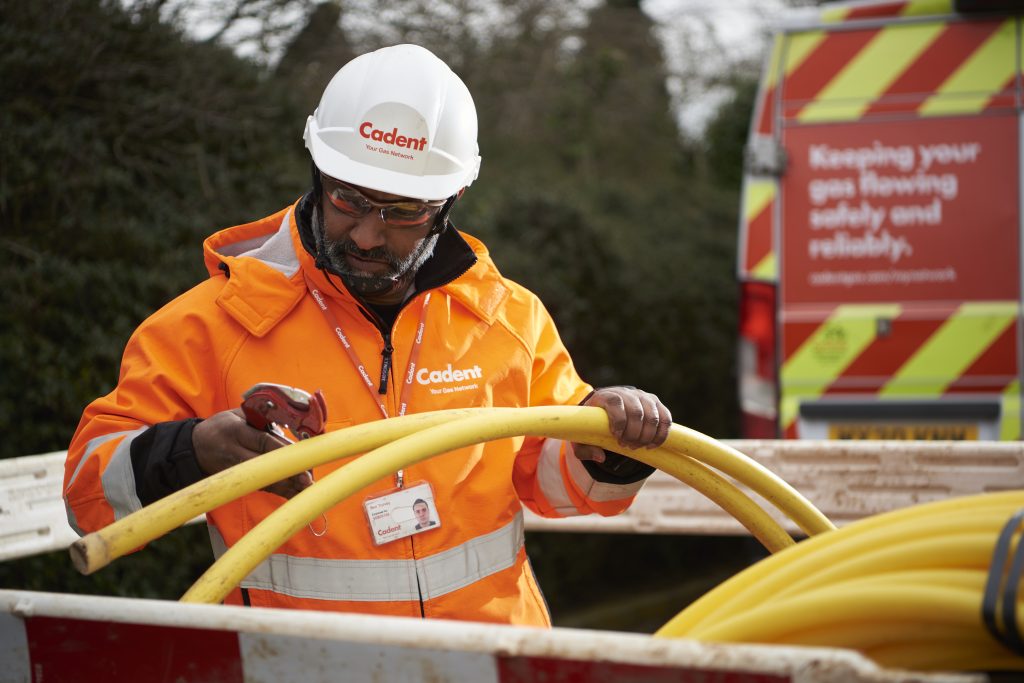A new partnership between the NSPCC and Britain’s four Gas Distribution Networks (GDNs)
will deliver vital safeguarding training to more than 18,000 workers across England ,
Scotland and Wales.
Half a million children suffer abuse and neglect a year in the UK, and almost 60,000 calls
were made to the NSPCC Helpline last year from adults including utility workers reporting
concerns about child safeguarding across the UK.
Everyone has a role to play in safeguarding children, and workers who visit homes have a
unique chance to make a difference. This is why gas engineers, including sub-contractors
and GDN staff at Cadent Gas, Northern Gas Networks, SGN and Wales & West Utilities, will
take part in specialised training developed by the children’s charity over the next two years.
The training, entitled It’s Your Call, will give GDN employees who cross thousands of
doorways every day the knowledge and confidence to help support vulnerable families and
children in their communities.
It’s Your Call is a simple training package which helps workers who visit homes recognise
signs of abuse and neglect and gives them the confidence and knowledge to seek
appropriate support, including contacting the NSPCC Helpline. The roll-out of the training
with GDN workers across Britain has already begun and will continue throughout the next
two years.
Edward Allard, social programmes manager at Cadent, said: “We are delighted to announce
our new partnership with the NSPCC. This is a significant and wide-reaching project and will
create a real force for good across Britain.
“We visit thousands of homes every day, and thanks to this partnership we can create an
army of safeguarders to help identify children at risk of neglect or abuse and ensure our
workers know how to help them get the support they need as soon as possible. As part of
our ongoing commitment to support customers living in the most vulnerable situations, each
GDN will also work with the NSPCC’s safeguarding experts to ensure that the safeguarding
of children and young people is fully embedded into our organisations.”

This project has been funded by the Vulnerability and Carbon Monoxide Allowance (VCMA) –
an Ofgem fund split between the four GDNs to work with partners, charities and
organisations to support customers in vulnerable situations.
As well as ensuring thousands of workers across the UK can help identify children at risk of
neglect or abuse, the project will offer the chance for a network of child protection
practitioners working with the NSPCC to learn about spotting carbon monoxide risks. The
practitioners will have access to free carbon monoxide detectors and will learn about fuel
poverty signposting to support thousands of households across the UK, ensuring more
families are kept safe and warm in their homes.
A utility worker from Wales, who contacted the NSPCC Helpline, said: “I’m an electrician
and I’ve just done a job at this family home, and what I saw shocked me. The house was
filthy and unhygienic, with cat faeces and litter all over the floor, and the kitchen counters
were piled high with unwashed dishes. I noticed several of the doors were off their hinges,
and in one of the bedrooms there was just a single stained mattress.
“The father seemed disorientated on my call, like he might have been drunk, although I
can’t be sure. I’m pretty sure there are three kids living there too, but I only got a decent
look at the toddler, who was walking around in nothing but a nappy. I’m concerned this isn’t
a safe environment for these kids to be living in, and I wish to make an anonymous report.”
Sir Peter Wanless, CEO of the NSPCC, said: “We are hugely excited about this project, and
grateful to Ofgem and all the GDNs for supporting this wonderful partnership. Everyone has
a role to play in preventing child abuse and neglect. With this training and support, we can
create a real force for good and help protect some of the most vulnerable members of our
society.
“By working together and sharing our resources, experience and expertise we can help
engineers and gas employees across the country play their part in supporting vulnerable
families and children in their communities.”
To find out more about how the NSPCC can support professionals to keep children safe,
including safeguarding training, consultancy and free resources, go to www.learning.nspcc.org.uk/
To find out more about the NSPCC’s work to protect children and young people and support
families across the country, go to www.nspcc.org.uk

















